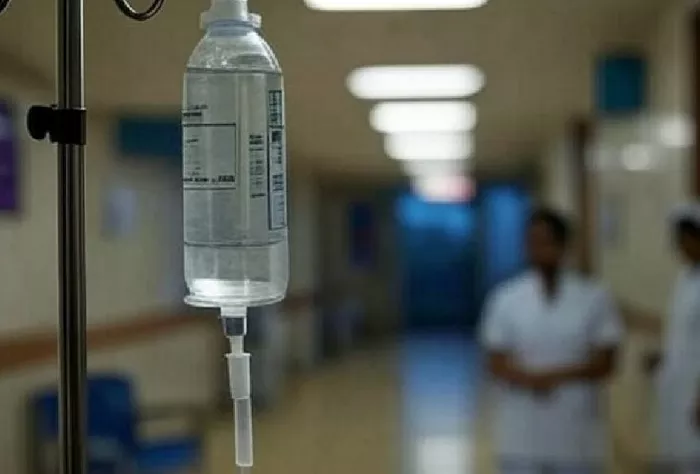In a deeply unsettling development from Tamil Nadu, researchers have traced a deadly outbreak of brain infections to contaminated saline used in a local dental clinic. The findings, detailed in The Lancet Regional Health, reveal that 21 people contracted neuro melioidosis—a rare but often fatal infection of the central nervous system—between July 2022 and April 2023. The majority of cases were reported in Tirupattur district, with others emerging from Ranipet, Krishnagiri, and Tiruvannamalai districts in northern Tamil Nadu.
Doctors at Christian Medical College (CMC) in Vellore, one of the region’s leading referral hospitals, were the first to notice a troubling pattern. Patients were arriving with symptoms that pointed unmistakably to brainstem involvement: high fever, slurred speech, facial paralysis, limb weakness, and in some instances, coma. Ten of these patients had one thing in common—they had all undergone dental treatments at the same clinic in Vaniyambadi, a town in Tirupattur. This shared history led to the identification of a medically induced source behind the infections.
Neuro melioidosis is caused by the bacterium Burkholderia pseudomallei, commonly found in tropical soil and water. While most infections occur through wounds or inhalation of contaminated materials, this outbreak involved an extremely rare route—transmission through dental procedures. Once inside the body, the bacterium traveled along facial and cranial nerves into the brainstem, triggering severe neurological damage. An unusual MRI pattern known as the “tunnel sign” confirmed the bacteria’s deep nerve pathway invasion.
Among the 21 patients diagnosed, 10 had recently undergone invasive dental work at the same clinic—procedures like extractions, root canals, and surgical cleaning. Tragically, 9 people died, including 8 from the dental group and 1 from those infected through environmental exposure. Most died within a median of 16 days from the appearance of initial symptoms. Of the 12 survivors, only 4 made near-complete recoveries, while the remaining 8 were left with serious neurological impairments such as partial paralysis and speech loss.
The first indication of a larger problem came in May 2023 when a married couple was admitted to CMC Vellore with nearly identical symptoms: seizures, coma, and sudden facial paralysis, all occurring shortly after dental procedures at the same clinic. Local media soon began reporting multiple unexplained deaths, prompting the hospital to alert public health officials on May 9. A rapid-response team including experts from the Indian Council of Medical Research (ICMR), CMC, and other health bodies launched a thorough investigation following World Health Organization protocols.
The team’s inspection of the Vaniyambadi clinic uncovered glaring lapses in hygiene. Despite handling invasive procedures, the facility operated without any formal infection control training. Saline bottles—used to flush wounds and mix anaesthetics—were repeatedly opened with unclean tools, left partially exposed, and reused across patients over several days. Environmental samples from the clinic confirmed their worst fears: one half-used bottle tested positive for Burkholderia pseudomallei.
Genetic sequencing revealed that the strain found in the saline matched the one in the brain tissue of a deceased patient. Moreover, this strain carried a gene variant known as bimABm, which boosts the bacteria’s ability to travel through nerves and infect the brainstem. This same variant has appeared in previous cases in Australia and India, suggesting that such dangerous strains may already be more widespread than previously thought.
Medical experts believe the bacteria likely entered patients through facial nerve endings during the dental procedures, following a direct neural path into the brainstem. This route bypasses many of the body’s natural immune defenses, allowing the infection to progress rapidly and lethally. The implications are profound, not only because of the clinic’s direct role but also because of the potential under-detection of such virulent bacterial strains across the region.
The crisis underscores broader public health concerns. While melioidosis is known in parts of India, this marks the first time a dental clinic has been linked to an outbreak of neuro melioidosis. Compounding the crisis is the bacterium’s resistance to many antibiotics. Only meropenem, an advanced intravenous antibiotic, proved effective. Yet in most cases, patients died before proper diagnosis and treatment could begin. Diagnosing the condition was itself a significant challenge, as standard cerebrospinal fluid tests often failed to detect the bacterium. Blood cultures or brain tissue samples—more accurate but less commonly used—were needed for confirmation.
The outbreak serves as a grim reminder of the life-threatening consequences of poor hygiene and infection control, especially in routine medical environments like dental offices. Seemingly minor oversights such as reusing saline bottles or failing to sterilize equipment were enough to unleash a public health catastrophe.
The presence of such a virulent strain of Burkholderia pseudomallei in both clinical and environmental samples highlights the urgent need for improved diagnostics, rigorous hygiene training, and better infection control standards in healthcare facilities. Without increased vigilance, experts warn, more outbreaks could follow—and some might remain undetected until it’s too late.
Related topics

